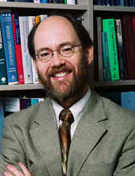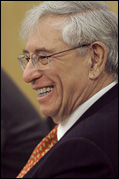The Fischell Department of Bioengineering at the University of Maryland presents:
THE 2014 FISCHELL FESTIVAL:
Thursday, Oct. 16, 2014
Jeong H. Kim Engineering Building
University of Maryland, College Park
Influenza Pandemic Preparedness: Evaluating Modes of Influenza
 Dr. Donald Milton, Professor of Epidemiology and Biostatistics & Medicine, and Director, Maryland Institute for Applied Environmental Health, University of Maryland School of Public Health Dr. Donald Milton, Professor of Epidemiology and Biostatistics & Medicine, and Director, Maryland Institute for Applied Environmental Health, University of Maryland School of Public Health
The relative importance for influenza transmission of direct and indirect contact (fomites), large droplet spray, and fine particle aerosols remains controversial and has major implications for responses to pandemic influenza. As part of “EMIT: Evaluating Modes of Influenza Transmission using a Human Challenge Model,” a $10M CDC funded study, we collected respiratory droplets shed by community acquired and laboratory inoculated influenza cases. We will describe the size distribution of droplets containing virus and the relationship of aerosol generation to case status, cough and other host characteristics. We will discuss the implications of our findings for interpretation of transmission studies in humans and continuing research needs to provide a solid scientific basis for public health measures to limit influenza pandemics.
Infectious Disease Diagnostics
 Dr. Ian White, Associate Professor, Fischell Department of Bioengineering, University of Maryland Dr. Ian White, Associate Professor, Fischell Department of Bioengineering, University of Maryland
To improve patient outcome and to prevent the spread of bacterial pathogens, there is a need for rapid diagnostics of bacterial infections. The gold standard today is to perform bacterial cultures. With this approach, pathogen identification may take from 2-7 days, and in some cases, false negatives occur. It is widely accepted that polymerase chain reaction (PCR) can be utilized to identify pathogen species (and in some cases pathogen strain). While the PCR reaction itself is rapid, the sample preparation for the PCR-based identification of bacterial pathogens is labor-intensive and must be performed by a technician. As a result, PCR is rarely employed for rapid diagnostics at the point of care.
Our research team has partnered with industry to develop low-cost microfluidic solutions for automated sample preparation for use with PCR-based diagnostics. In particular, we focused on bloodstream infections, which present a particularly challenging sample matrix to prepare. In this talk, microfluidic solutions for high throughput whole blood preparation and cell sorting, cell lysis, and DNA purification are presented. We anticipate that the direct integration of these technologies with microfluidic PCR will lead to a rapid and automated solution for infectious disease diagnostics that can be employed at the point of care.
Engineering Synthetic Vaccines to Promote Immunity or Tolerance
 Dr. Christopher Jewell, Assistant Professor, Fischell Department of Bioengineering, University of Maryland Dr. Christopher Jewell, Assistant Professor, Fischell Department of Bioengineering, University of Maryland
Vaccines and immunotherapies have generated some of the largest impacts on human health in history, but a fundamental challenge now facing the field is how to control specific properties of immune responses elicited by vaccines. This seminar will introduce two strategies being developed to study and exploit the interactions between biomaterials and immune cells and tissues. One approach involves direct delivery of synthetic vaccine carriers to lymph nodes, the “command center” that coordinate immune response. We have combined direct lymph node injection—which has recently demonstrated great potential in human clinical trials—with biomaterials to establish a platform to directly study the link between material properties and lymph node function. We have also adapted this idea to locally engineer the lymph node environment to generate rapid and potent immune responses. To better control the specific properties of these responses, we are incorporating signals in biomaterial vaccines formulations that promote immune stimulation or immune tolerance, depending on the cues included in the vaccines. These approaches could generate new knowledge of how material properties bias local and systemic immunity and contribute to new therapeutic vaccines that combat cancer or autoimmune disease.
Registration: The Festival is Part of Mpact Week!

The Fischell Festival is now part of the A. James Clark School of Engineering's Mpact Week, a series of signature events showcasing the best research from our faculty, students and colleagues. You'll find common themes throughout, such as entrepreneurship, robotics, and fearless ideas for improving millions lives.
Questions? Please e-mail us at fischellfestival@umd.edu.
Return to the Fischell Festival homepage »

|

Through a $31 million gift, Robert E. Fischell and his sons Tim, Scott and David established the Fischell Department of Bioengineering and the Robert E. Fischell Institute for Biomedical Devices at the Clark School of Engineering.
"The greatest achievement that engineering can make is to improve the quality of life for millions of people. Our gift will help young engineers develop their ideas to improve healthcare for human beings throughout the world."
Robert E. Fischell, M.S. '53, Physics
Visit the Fischell Department of Bioengineering web site to learn more about the Fischell family and their contributions » |

